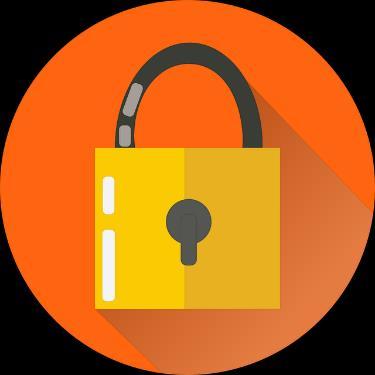






VR is a 3D computer generated environment that users can explore wearing a VR Headset.
Meta Quest are one of the more popular VR Headsets. Users aged 13+ can use Meta Quest (children between 10 and 12 years old can use it through a parent managed account). Meta Quest state that VR Headsets are not recommended for use by younger or smaller-sized children for a variety of reasons including eye strain. Optional supervision tools are available for those aged 13–17. Find out more here: https://familycenter.meta.com/uk/our -products/horizon-and-quest/
Meta Quest has a Safety Centre; it includes health and safety warnings and how to set privacy settings. https://www.meta.com/gb/quest/safe ty-center/
Gorilla Tag
This is a popular game and whilst rated as PEGI 3 (even though young children should not be using VR), it is important to note that it does include in app purchases and players can interact so there is a risk of offensive/ inappropriate language. https://www.esrb.org/blog/a-parentsguide-to-gorilla-tag/
What can I do?
- Check what games your child is accessing and make sure they are appropriate.
- Play together.
- Set time limits and ensure plenty of breaks.
Further information:
- https://www.nspcc.org.uk/keepingchildren-safe/online-safety/virtualreality-headsets/

It is important to develop an understanding of how you can protect your child’s privacy online. Any personal information shared online creates a digital footprint and it is vital that we control who sees what.
What are Privacy settings?
Privacy settings are tools available on most social media apps, websites, and games. They allow users to control who can view what they share online.

What can we do to support our children with their online privacy?
Talk to your child regularly: Talk to your child about what is personal information and to think about what they share online. Personal information includes their name, address, current location and the school they attend. This also includes information within photos or videos that they may share, for example does it show their current location?
Apply appropriate privacy settings: For any app, game or device that your child uses, check the privacy settings and apply them as appropriate. For example:
o Check if their location is being shared.
o Check who can tag them in posts (as what others tag them in can also affect their digital footprint).
o Check who can share their content. Check these settings regularly as new options may become available or sometimes updates can change previous settings.
Children learn from us: Think about what you are sharing online – do you share photos of your child in their school uniform or their current location?
Set strong/complex passwords: Teach your child to create strong/complex passwords and to never share them with others.
Search their name – search their name in a search engine to see what information can be seen about your child. Remind your child that they can delete any information that they no longer want others to see.
• https://www.childline.org.uk/info-advice/bullying-abusesafety/online-mobile-safety/taking-care-your-digital-footprint/
• https://www.unicef.org/parenting/child-care/online-privacy
• https://www.ceopeducation.co.uk/11_18/lets-talk-about/onlinesafety/privacy-settings/
Users of

websites, documents, or videos, nor are we claiming any ownership or copyright in the content of the linked materials.


Spotify is a music streaming service. You must be aged over 13 to access it. If under 18, parent/guardian consent is required. For children under the age of 13, then Spotify Kids is available (only available as part of a Premium, paid for Family plan).
Spotify offers both free and premium plans, which incur a monthly charge. Parental controls are only available through the Family plan.

The parental controls available through the (paid) Family plan include:
• Set content explicit filters for family members.
• You can mark specific artists with ‘don’t play this’.
What do I need to be aware of?
• Explicit content – explicit content that is not suitable for children can be found on Spotify (e.g. song lyrics). It is marked with an ‘Explicit Content’ or ‘E’ label. You can change the settings so ‘Explicit content’ is greyed out.
• Podcast content – some podcasts may discuss adult themes, which may not be appropriate for your child.
• Adverts in the free version – products or content promoted may not be appropriate for your child.
• Social aspect - users can follow friends, so ensure your child knows how to unfollow and block users when necessary: https://support.spotify.com/uk/article/follow-friends-managefollowers/
• Playlists – by default, all new playlists you create are public. You can change this setting.
• You should be aware that inappropriate profile names and images have been found on Spotify.
• If your child is using Spotify, then Spotify have produced this Parental Guide to assist you with further information: https://www.spotify.com/privacy/files/Parental_Guide.pdf
• https://www.spotify.com/uk/safetyandprivacy


Deepfake content, also known as synthetic media, is computer generated content that looks and sounds real. Deepfake content can be used to spread misinformation, used in scams, or used to cause upset to others. It can be difficult to spot, so it is important to be aware of it. Find out more here:
• https://swgfl.org.uk/topics/synthetic-media-deepfake/
• https://www.bbc.co.uk/newsround/69009887

The online world is difficult to navigate, and mistakes will happen. When they do, it is important that as a parent you are ready.
If your child tells you about something that they have done wrong online, then try to stay calm and listen.
You may not know how to solve the issue but tell them you will help them work it out.
Try and resolve the problem together to help your child learn and understand what went wrong. This will also develop their digital literacy skills.
You should also take the opportunity to review/set up any available parental controls.
If you feel like you may need support from an external organisation, then Parent Zone have listed some of the different organisations available: https://parentzone.org.uk/article/help -and-support
Further information:
https://www.brightcanary.io/what-todo-when-your-child-sendsinappropriate-things/


Internet Matters have created a list of text language terms to help you understand some of the text slang that your child might be using. Find out more here:
https://www.internetmatters.org/reso urces/text-dictionary/
